Following The Treasury Laws Amendment (Housing Tax Integrity) Act 2017 (No.126,2017) limiting tax deduction claims on depreciating assets, many of us are not sure who is exempted from this new ATO ruling post-budget change 2017.
Let’s get into this and explore which party/entity is affected by it and in what circumstance is one exempted from this new ruling.
Entity Types
Personal/Individual: Obviously this is the typical person being the taxpayer whose income tax increases as his income increases. As an individual who purchases a residential property to derive rental income, you are affected and ineligible to claim depreciation on your second-hand assets on the property.
Sole Traders/Self-Employed: Individuals who run businesses as sole proprietors are taxed basically just like an individual where all income is derived from their businesses Likewise, you can’t claim depreciation on your second-hand assets on the property. unless you operate it as part of a business and run business activity on it.
Super Fund: A professionally managed retirement saving investment that is strictly regulated by APRA to ensure compliance and regulatory requirements are met. Due to this nature, it is unaffected by the ruling as an excluded entity.
Self-Managed Super Fund: Similar to Super Fund but individuals can manage their own retirement savings by being the trustee of their own fund and controlling how their investments can be invested, therefore in this case one is affected by this ruling.
Family Trust: This trust is set up for family members as beneficiaries, but its management is similar to SMSF and it is affected by this ruling.
Company: As a corporate tax entity and not in its capacity as a trustee of a trust, one would not be affected by this ruling as it is regulated under the Corporations act administered by ASIC.
Unit Trust: As a type of investment vehicle with unrelated parties pooling their money together as unit holders to operate businesses/es or invest in properties or securities, one would not be affected by this ruling as it is regulated similarly to Company.
Therefore, after examining the above entity types and to be able to still claim second-hand assets in residential property, one will need to be an excluded entity or be carrying on a business on that property.
Now, let’s have a look at what is defined as “carrying on a business for tax purposes”, specifically leasing rental properties or short-term accommodation to be able to still claim these second-hand assets’ depreciation deductions.
Below are the links showing a list of supporting information you need to provide to substantiate your application for a private ruling request:
If the above private rulings apply to you, you will potentially be eligible for an exemption. For further details and confirmation on this information, please contact your tax accountants or lawyers who are specialized in this area.


